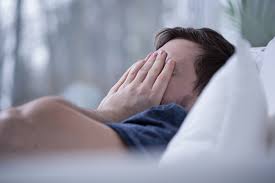We all need seem sleep for ideal emotional and physical well being, yet at times the body don’t work. About 50-70 million adults have problems with one or more sleep disorders which impair their operating, mood and total standard of living. Sleep disorders might be mild or extreme, and the good news is that many might be controlled with timely medical diagnosis and treatment method. Within this blog post, we shall investigate the most typical kinds of sleep disorders, their signs and symptoms, and tips on how to street address them efficiently.
1. Sleep problems
Here is the mostly experienced Sleep disorders, seen as a issues falling or keeping asleep. Insomnia signs can carry on for weeks or months and might entail day time exhaustion, frustration, and trouble paying attention. Insomnia can be a result of tension, anxiety, shift operate, medicines, or root medical conditions. Behavior alterations, such as setting up a regular sleep program, staying away from coffee and alcoholic drinks, and soothing before bedtime, may help handle sleeplessness. Medications, including sedatives and hypnotics, can be approved to promote sleep.
2. Sleep Apnea
Sleep apnea is a condition that disrupts breathing during sleep on account of narrowed or obstructed airways. The most common type is obstructive sleep apnea, and yes it has an effect on about 25Percent of grown ups. Indications of sleep apnea consist of deafening snoring, gasping, and choking noises while sleeping, daytime sleepiness, mood swings, and decreased sexual drive. Risks for sleep apnea consist of obesity, high blood pressure, nose blockage, and smoking. Treatment solutions for sleep apnea consist of fat loss, employing a ongoing positive air passage strain (CPAP) device, changes in lifestyle, and often surgical procedure.
3. Narcolepsy
Narcolepsy is actually a unusual neurological problem which induces too much day time sleepiness, unpredicted episodes of falling asleep, and loss in muscle tissue control. Indications of narcolepsy may start in years as a child or teenage years, and might cause societal and occupational impairments if untreated. The precise cause of narcolepsy is not known, yet it is believed to be linked to irregularities in hypothalamus neurons that manage sleep and wakefulness. Treatment solutions for narcolepsy involve medicines, such as stimulating elements and antidepressants, and changes in lifestyle to boost sleep hygiene and trigger avoidance.
4. Unsettled Lower body Syndrome
Restless Lower-leg Syndrome (RLS) is a kind of neurologic condition which induces an need to maneuver one’s legs to alleviate unpleasant feelings for example cramping pains, pins and needles, and scratching. This issue can obstruct sleep quality, causing insomnia and day time fatigue. The actual reason behind RLS is uncertain, but it can be associated with steel deficit, nerve injury, or particular medicines. No-pharmacologic treatments, for example lower-leg massages, very hot bathing, and routine workouts, might help reduce RLS signs and symptoms. Drugs, for example dopamine agonists and opioids, will also be approved to deal with moderate to severe RLS signs or symptoms.
5. Shift Operate Sleep Disorder
Transfer Job Sleep Condition (SWSD) is a kind of sleep disorder that affects people that function low-classic hrs, such as night changes, spinning shifts, or expanded shifts. SWSD can interrupt the body’s all-natural sleep-wake routine, resulting in sleeplessness, tiredness, and decreased performance. SWSD may also greatly increase the danger for incidents, errors, and medical conditions including obesity, diabetes mellitus, and heart disease. Personality interventions, such as implementing a regular sleep routine, staying away from caffeine and stimulants, and creating an best sleep atmosphere, can help deal with SWSD. Medicines, such as melatonin plans and wake-promoting agencies, may also be used to regulate sleep styles.
Simply speaking:
Sleep is vital for your emotional and physical health and wellbeing, as well as disorder to our own sleep can have substantial effects on our health and wellness and happiness. Sleep disorders certainly are a frequent kind of sleep disorder, and often go undiagnosed and untreated. Signs and symptoms of sleep disorders can vary from gentle to significant, and early on discovery and correct interventions can result in increased well being benefits. It is very important to acknowledge the signs and symptoms of sleep disorders and seek out the help of a doctor to manage them efficiently. By comprehending the various kinds of sleep disorders along with their symptoms, we are able to do something towards a greater quality of life and relaxing sleep.



